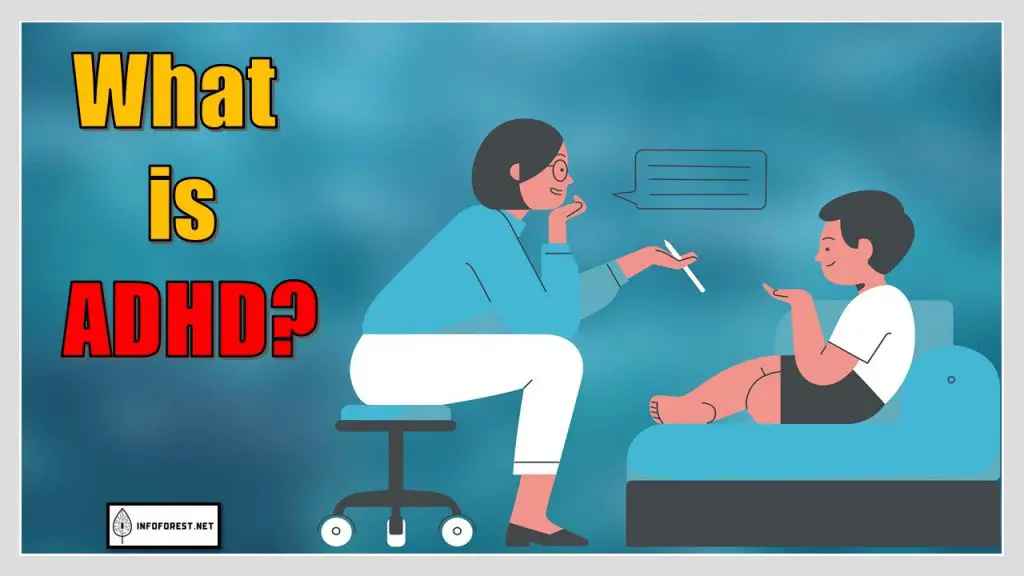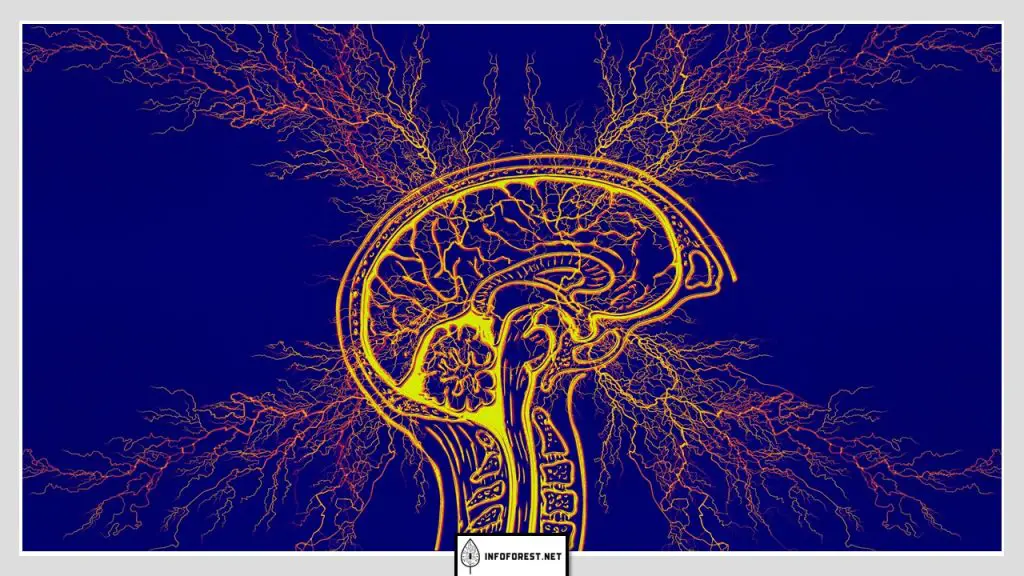
ADHD, or Attention Deficit Hyperactivity Disorder, is a neurodevelopmental condition that affects a person’s ability to regulate their attention, behavior, and emotions. It is commonly diagnosed in childhood, but can also persist into adulthood. Individuals with ADHD may have difficulties with attention, impulsiveness, and hyperactivity, which can impact their daily functioning and relationships. The exact causes of Attention Deficit Hyperactivity Disorder are not yet fully understood, but research suggests a combination of genetic and environmental factors. Treatment for Attention Deficit Hyperactivity Disorder typically involves a combination of medication, behavioral therapy, and lifestyle changes to help manage symptoms and improve functioning.
ADHD
ADHD stands for Attention Deficit Hyperactivity Disorder and is a neurodevelopmental disorder that affects individuals’ ability to regulate attention, behavior, and emotions. It is characterized by symptoms such as inattention, impulsiveness, and hyperactivity which can impact daily functioning and relationships.
ADHD is commonly diagnosed in childhood, but it can persist into adulthood. The exact cause of ADHD is not yet fully understood, but it is believed to be a result of a combination of genetic, neurological, and environmental factors.
Diagnosis of ADHD typically involves a comprehensive evaluation by a healthcare professional, including a detailed medical history, behavioral assessments, and sometimes neurological testing. The symptoms of ADHD must be persistent, impairing, and present in multiple settings (e.g., at home, school, work) to meet diagnostic criteria.
Treatment for ADHD typically involves a combination of medication, behavioral therapy, and lifestyle changes to help manage symptoms and improve functioning. Medications such as stimulants can help improve attention and reduce impulsiveness and hyperactivity. Behavioral therapy can help individuals with ADHD develop coping strategies and skills to improve attention and behavior. Lifestyle changes such as regular exercise, good sleep habits, and a structured routine can also help manage symptoms.
It is important to note that ADHD is a highly individualized condition, and what works for one person may not work for another. Therefore, a comprehensive and individualized treatment plan is crucial for managing symptoms and improving daily functioning.
We also invite you not to miss our other popular articles such as:
Difference Between Rose Gold and Yellow Gold– ChatGPT–Difference between left and right Twix–Difference Between Eastern Time Zone and Central Time Zone–Difference Between Capitalism and Communism– Difference Between EST and EDT–How many weeks in a Year– Difference Between Evening and Afternoon – Democrat vs Republican
Symptoms
ADHD, or Attention Deficit Hyperactivity Disorder, is characterized by a persistent pattern of inattention, impulsiveness, and/or hyperactivity that interferes with daily functioning and development. Symptoms of ADHD can vary in severity and presentation from person to person, but they must be persistent, impairing, and present in multiple settings (e.g., at home, school, and work) to meet diagnostic criteria.
Inattention symptoms include:
- Difficulty sustaining attention or focus, especially on tasks that are not interesting or enjoyable
- Forgetfulness or disorganization
- Distractibility and being easily sidetracked by irrelevant stimuli
- Trouble following through on tasks or instructions, especially those that are complex or lengthy
- Avoiding tasks that require sustained mental efforts, such as homework or paperwork
- Losing things or misplacing items frequently
- Forgetting important details or appointments
Impulsiveness symptoms include:
- Acting without thinking, especially in social situations
- Interrupting others or talking over them
- Acting on urges and desires without considering the consequences
- Taking unnecessary risks or making impulsive decisions
- Difficulty waiting for one’s turn, such as in a line or during a conversation
Hyperactivity symptoms include:
- Restlessness and fidgeting, especially in seated or quiet situations
- Excessive talking or nonstop chatter
- Difficulty sitting still or staying in one place
- Constant physical activity, such as tapping feet or fidgeting with objects
- Difficulty engaging in quiet activities, such as reading or relaxing
It is important to note that not all individuals with ADHD will exhibit all symptoms, and the symptoms can change over time as a person ages and their environment changes. If you are concerned that you or someone you know may have ADHD, it is important to speak with a healthcare professional for a proper evaluation and diagnosis.

Causes
The exact cause of ADHD is not fully understood, but it is thought to be a result of a combination of genetic, neurological, and environmental factors. Some of the most well-established contributing factors to the development of ADHD include:
- Genetics: Attention Deficit Hyperactivity Disorder tends to run in families, and studies suggest a strong genetic component to the condition.
- Brain structure and function: Research suggests that certain regions of the brain may be smaller or have reduced activity in individuals with Attention Deficit Hyperactivity Disorder, affecting attention and impulse control.
- Chemical imbalances: Imbalances in neurotransmitters, such as dopamine and norepinephrine, may play a role in the development of ADHD.
- Prenatal exposure to substances: Exposure to substances such as alcohol, tobacco, or drugs during pregnancy can increase the risk of ADHD in children.
- Trauma or injury: Traumatic brain injury, particularly in early childhood, has been linked to an increased risk of ADHD.
- Environmental factors: Exposure to lead, pesticides, and other toxins have been associated with an increased risk of Attention Deficit Hyperactivity Disorder. Stressful life events, such as poverty, family conflict, or neglect, may also increase the risk of ADHD.
It is important to note that ADHD is a complex condition, and the exact cause of ADHD may be different for each individual. Further research is needed to fully understand the causes of Attention Deficit Hyperactivity Disorder and develop effective treatments.
Treatment
Treatment for ADHD typically involves a combination of medication, therapy, and lifestyle changes. The specific treatment plan will depend on the individual’s age, symptoms, and personal preferences. Some common treatments for ADHD include:
- Medication: Stimulant medications, such as Ritalin and Adderall, are the most commonly prescribed medications for Attention Deficit Hyperactivity Disorder. These medications help to increase levels of neurotransmitters, such as dopamine and norepinephrine, in the brain, improving attention and reducing impulsiveness and hyperactivity. Non-stimulant medications, such as Strattera, are also available for those who cannot tolerate or have contraindications to stimulant medications.
- Therapy: Psychotherapy, such as cognitive-behavioral therapy (CBT), can help individuals with ADHD develop coping skills, improve social skills, and manage stress and anxiety. Family therapy can also help to improve communication and relationships within the family.
- Lifestyle changes: Making changes to one’s environment, such as reducing distractions, establishing routines, and breaking tasks into smaller, manageable steps, can help individuals with ADHD manage their symptoms and improve daily functioning. Exercise, mindfulness, and stress management techniques can also be beneficial.
- Education and coaching: Individuals with Attention Deficit Hyperactivity Disorder can benefit from learning about the condition and strategies for managing symptoms. A coach or counselor can help with organization, time management, and other skills.
It is important to note that not all treatments will be effective for all individuals with ADHD, and it may take time to find the right combination of treatments. It is important to work closely with a healthcare professional to develop a treatment plan that is right for you.

ADHD and School-Aged Children
ADHD can significantly impact school-aged children, affecting their academic performance, social relationships, and self-esteem. Some common challenges that school-aged children with ADHD may face include:
- Inattention: Children with ADHD may struggle to sustain attention in the classroom, leading to poor grades and difficulty with homework.
- Impulsiveness: Children with Attention Deficit Hyperactivity Disorder may have trouble waiting their turn, interrupting others, or acting without thinking, leading to social conflicts with classmates and teachers.
- Hyperactivity: Children with ADHD may have trouble sitting still or focusing on tasks, leading to restlessness and disruptive behavior in the classroom.
- Executive function difficulties: Children with Attention Deficit Hyperactivity Disorder may struggle with tasks such as organization, planning, and time management, making it difficult to complete assignments and prepare for exams.
However, with appropriate support and accommodations, many school-aged children with Attention Deficit Hyperactivity Disorder are able to succeed academically and socially. Some strategies that may help include:
- Medication: Stimulant medications can be effective in improving attention and reducing hyperactivity and impulsiveness in school-aged children with ADHD.
- Accommodations: School accommodations, such as extra time on tests, a quiet workspace, and frequent breaks, can help children with ADHD manage their symptoms and perform to their full potential.
- Behavior modification: Behavioural strategies, such as positive reinforcement and reinforcement, can help children with Attention Deficit Hyperactivity Disorder improve their behavior and social skills in the classroom.
- Collaboration: Collaborating with teachers, coaches, and healthcare providers can help ensure that children with Attention Deficit Hyperactivity Disorder receive consistent support and accommodations both at home and at school.
It is important to work with a healthcare professional to develop a comprehensive treatment plan for school-aged children with ADHD. With the right support, many children with ADHD are able to succeed academically, socially, and personally.
ADHD and Adults
ADHD can continue to impact individuals into adulthood, affecting relationships, work performance, and daily functioning. Some common challenges that adults with ADHD may face include:
- Inattention: Adults with Attention Deficit Hyperactivity Disorder may struggle to sustain attention in tasks, leading to difficulties with time management, organization, and completing projects.
- Impulsiveness: Adults with ADHD may have trouble controlling their impulses, leading to difficulties with decision-making and impulsively engaging in risky behavior.
- Hyperactivity: Adults with ADHD may have difficulty with restlessness, leading to difficulty with sitting still, remaining in one place, or completing tasks.
- Executive function difficulties: Adults with ADHD may struggle with tasks such as organization, planning, and time management, making it difficult to manage daily responsibilities.
- Emotional regulation: Adults with ADHD may struggle with emotional regulation, leading to difficulty with anger management and stress management.
However, with appropriate treatment and support, many adults with ADHD are able to manage their symptoms and lead fulfilling lives. Some strategies that may help include:
- Medication: Stimulant medications and non-stimulant medications can be effective in improving attention and reducing hyperactivity and impulsiveness in adults with ADHD.
- Therapy: Psychotherapy, such as cognitive-behavioral therapy (CBT), can help adults with ADHD manage symptoms and improve emotional regulation.
- Lifestyle changes: Making changes to one’s environment, such as reducing distractions, establishing routines, and breaking tasks into smaller, manageable steps, can help adults with ADHD manage their symptoms and improve daily functioning. Exercise, mindfulness, and stress management techniques can also be beneficial.
- Coaching: A coach or counselor can help with organization, time management, and other skills.
It is important to work closely with a healthcare professional to develop a comprehensive treatment plan for adults with ADHD. With the right support, many adults with ADHD are able to lead fulfilling lives and reach their full potential.
Most Viewed Articles
Conclusion
ADHD, or attention-deficit/hyperactivity disorder, is a neurodevelopmental disorder characterized by symptoms of inattention, impulsiveness, and/or hyperactivity. While its exact cause is not known, ADHD is believed to be related to a combination of genetic, environmental, and brain development factors. The symptoms of ADHD can have a significant impact on a person’s life, affecting academic performance, relationships, work, and daily functioning.
Treatment for ADHD typically involves a combination of medication, therapy, lifestyle changes, and support from family and friends. For children with ADHD, school accommodations, behavior modification, and collaboration with teachers and healthcare providers can also be helpful. For adults with ADHD, medication, therapy, lifestyle changes, and coaching can improve daily functioning and overall quality of life.
It is important to work closely with a healthcare professional to develop a comprehensive treatment plan for ADHD. With the right support, individuals with ADHD can manage their symptoms and lead fulfilling lives.
We also invite you not to miss our other popular articles such as:
How to write a CV– What Is Collagen–What Is Dragon Fruit– Mediterranean Diet–Characteristics of a Narcissist–What is SEM – What is SEO–What is RSV– What Is Web 3.0–What is NFT–What is a Recession– What Is Bitcoin– What Is PayPal and How Does it Work – Kilometer vs Mile – How to get rid of hiccups What does TBH mean – What does NSFW mean – What does IG mean–What does CAP mean– What is normal blood pressure –What is the rarest blood type–Difference Between Hotel And Motel – Differences Between Chinese and Japanese and Difference Between Zip Code and Postal Code







